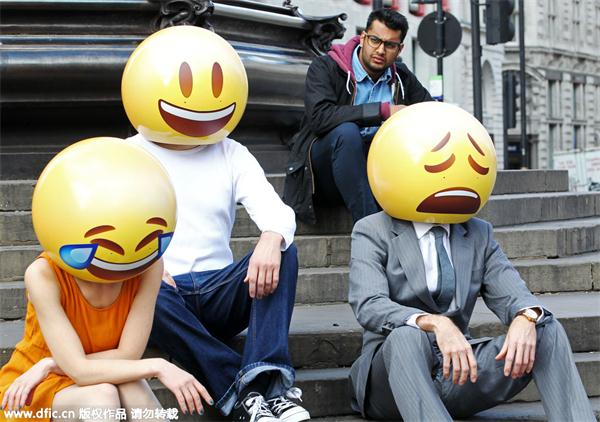 |
|
People dressed as emoji characters tour London, May 19, 2015. [Photo/IC] |
Oxford Dictionaries' announcement of the Word of the Year - a face with tears of joy, seemingly weeping over its victory - left many astonished. Unlike past years (2014 was the year of "vape"), the hallowed authority on the English language chose a photogram as the Word of 2015, instead of an old-fashioned string-of-letters.
"Our judges picked up this laughing and crying face due to the sharp increase in popularity of emoji around the world. It is not surprising, as 21st century culture, we become so visually-driven, emotionally-expressive and obsessively-immediate. Traditional alphabet scripts have a hard time keeping up and adapting to the rapid-fire demands," said Casper Grathwohl, president of Oxford Dictionaries, in a video interview published on YouTube by Oxford Dictionaries.
Emoji, a kind of pictograph but different from typographic emoticons, initially used by Japanese mobile operators, have been a staple of texting culture for years but it was over the past 12 months that we witnessed emoji culture explode into the global mainstream. Even Hillary Clinton asked for feedback on her official Twitter account using emoji. "The usage of emoji more than tripled in 2015 compared to 2014, Oxford data found" as reported in the Washington Post.
Monie Xiao, a postgraduate majoring in Translation at Fudan University based in Shanghai said: "These symbols have already been necessities for me whenever I chat with my friends. I tend to end up my words with an emoji almost in every message, which has become a habit."